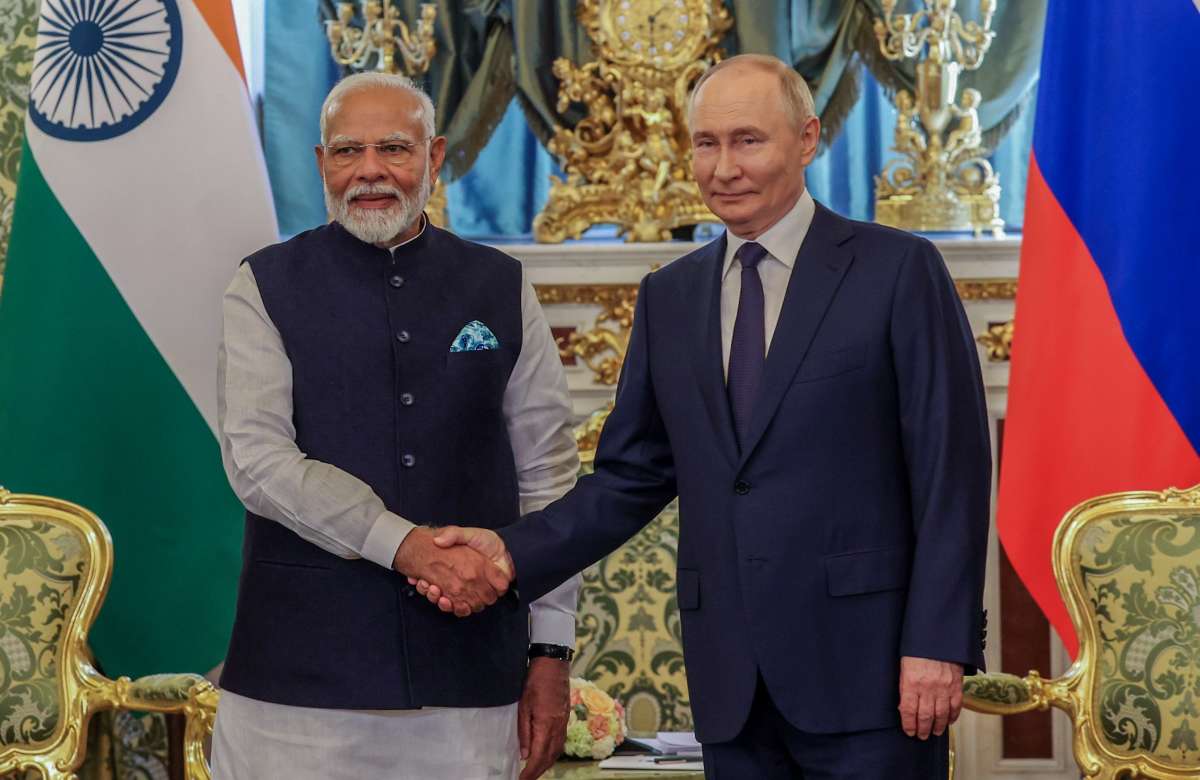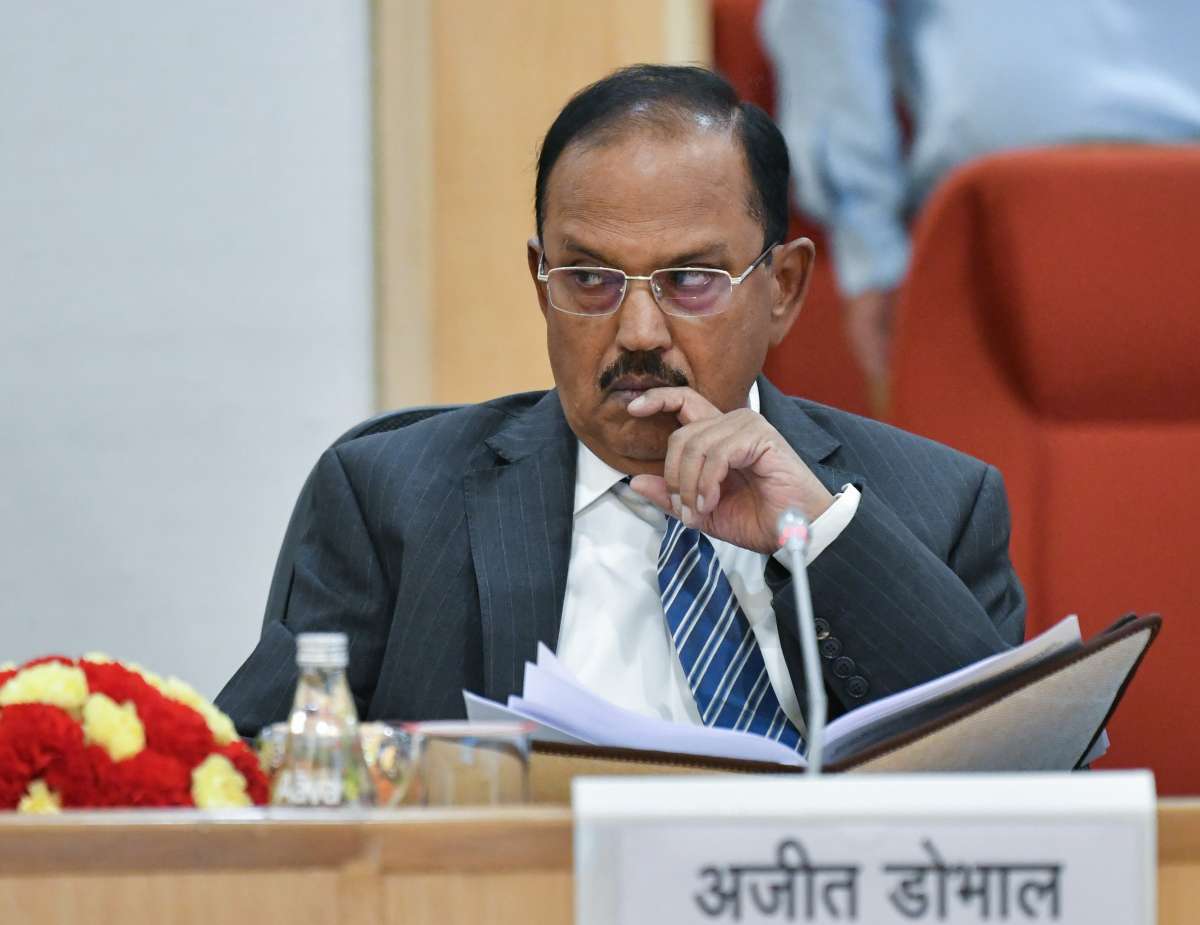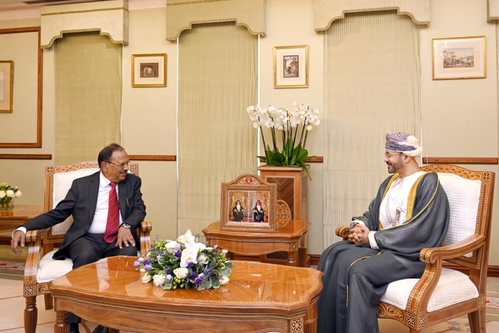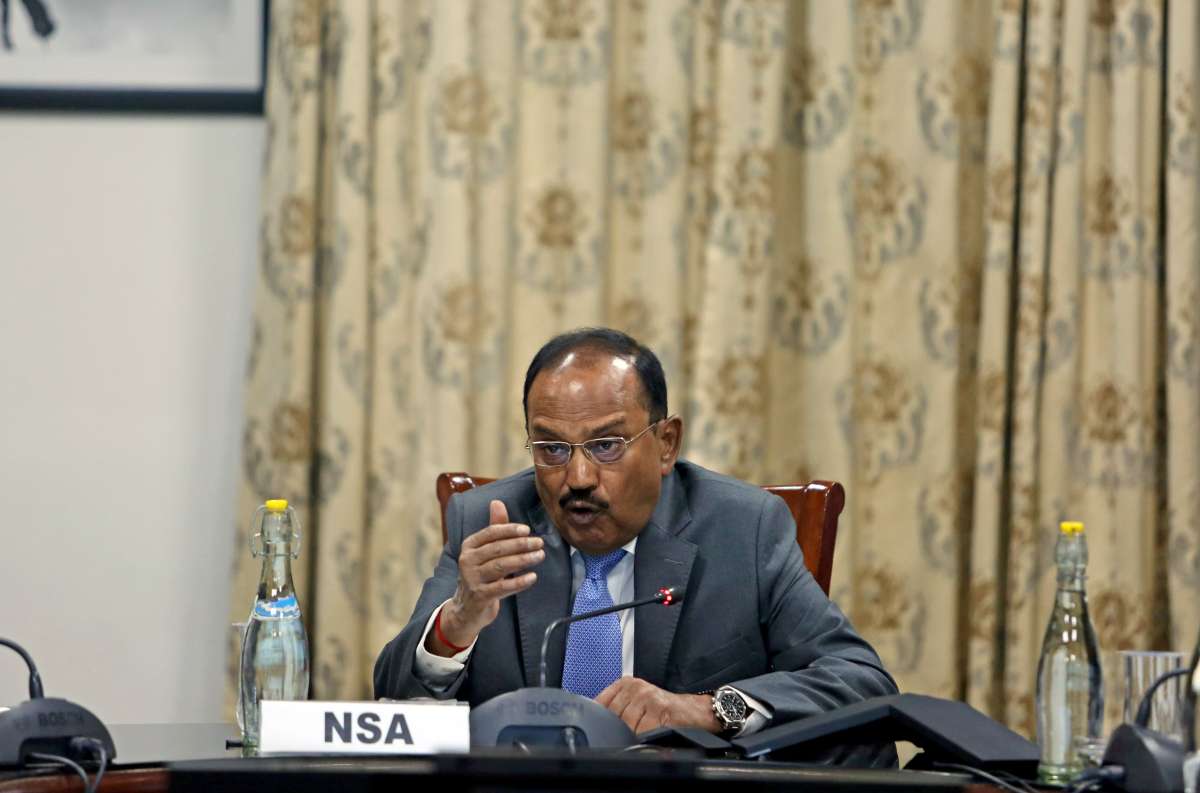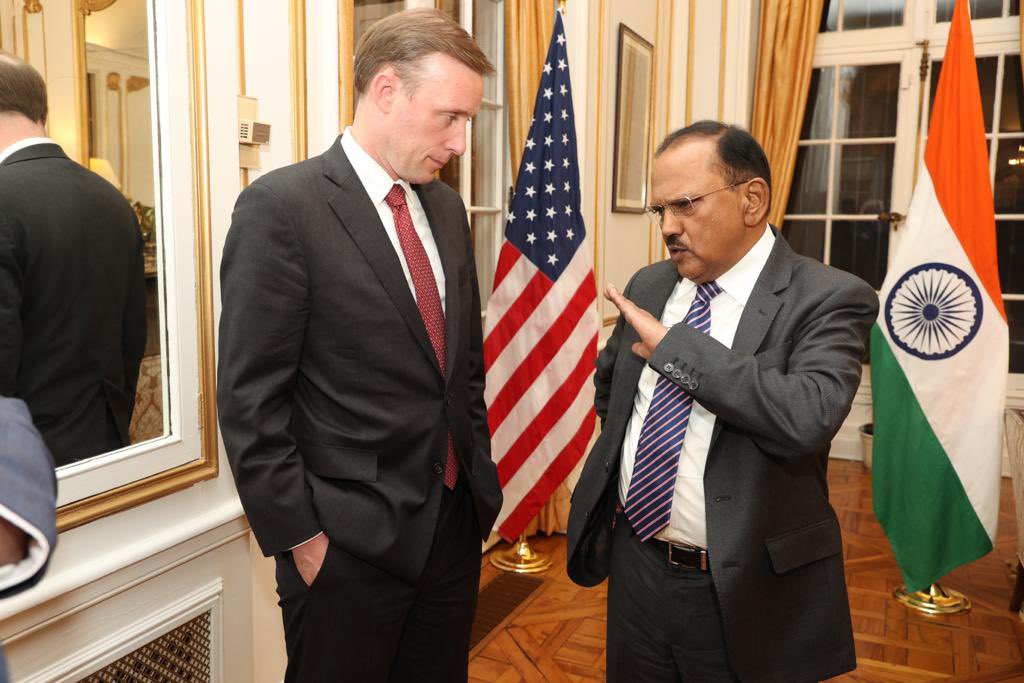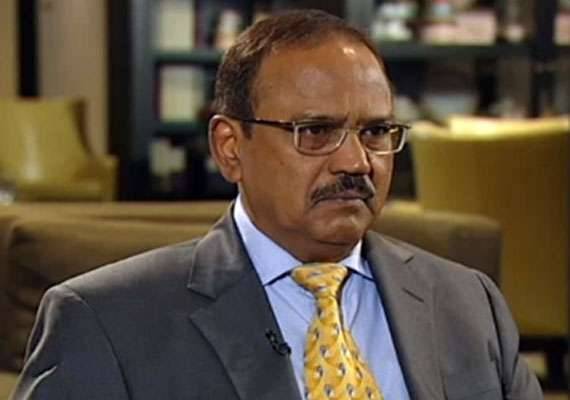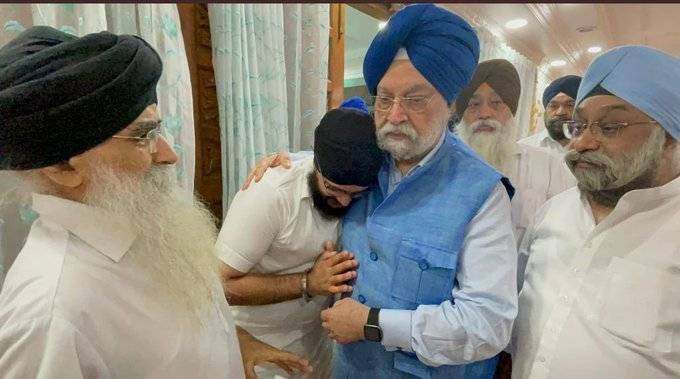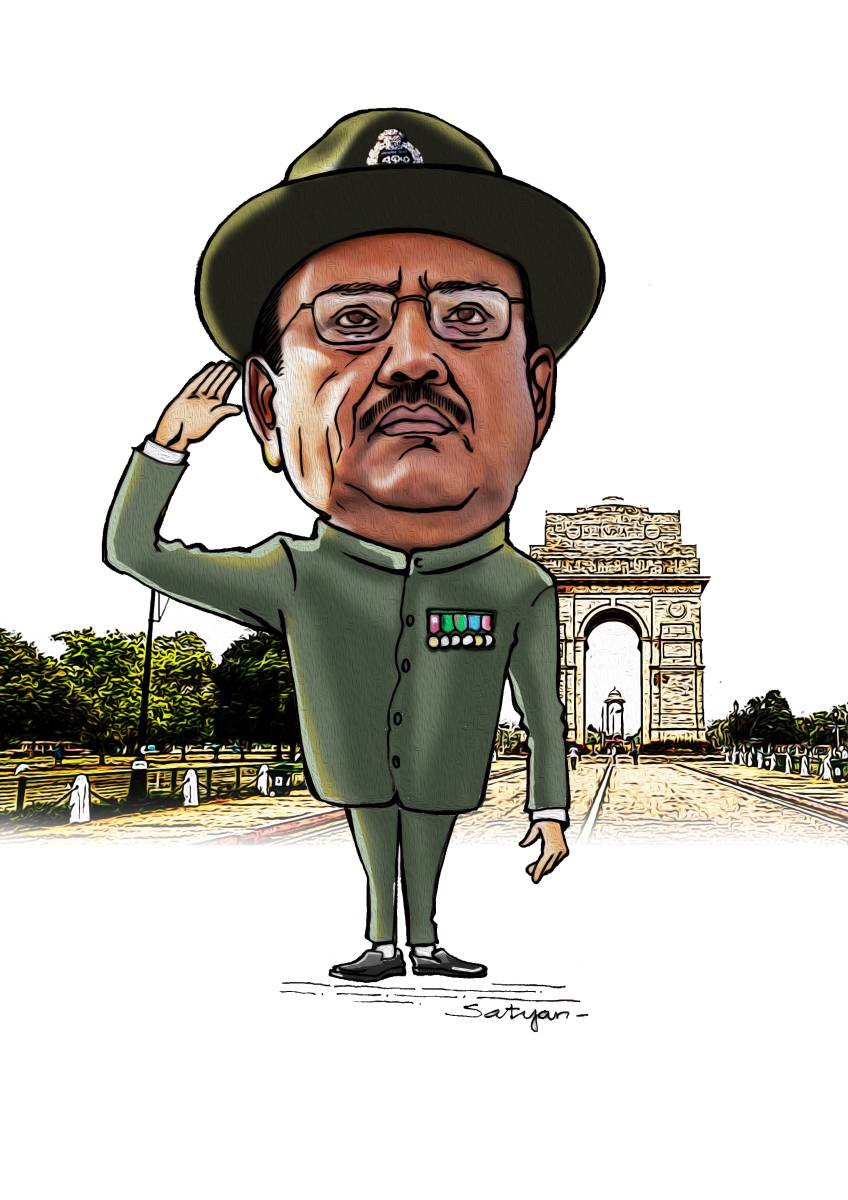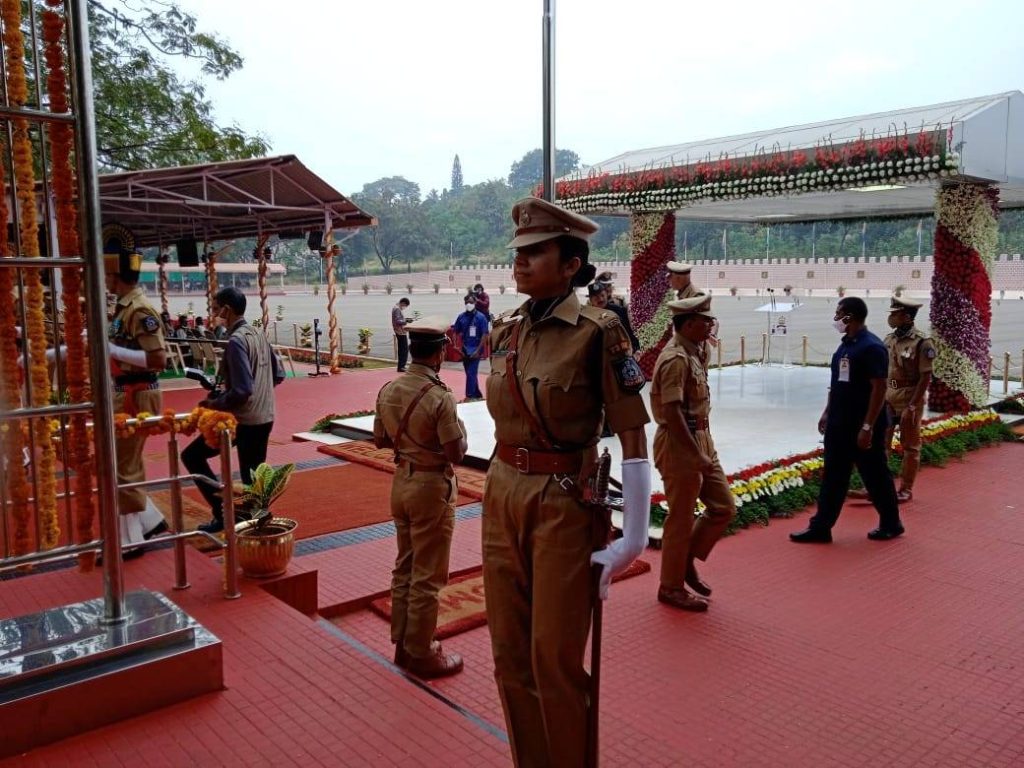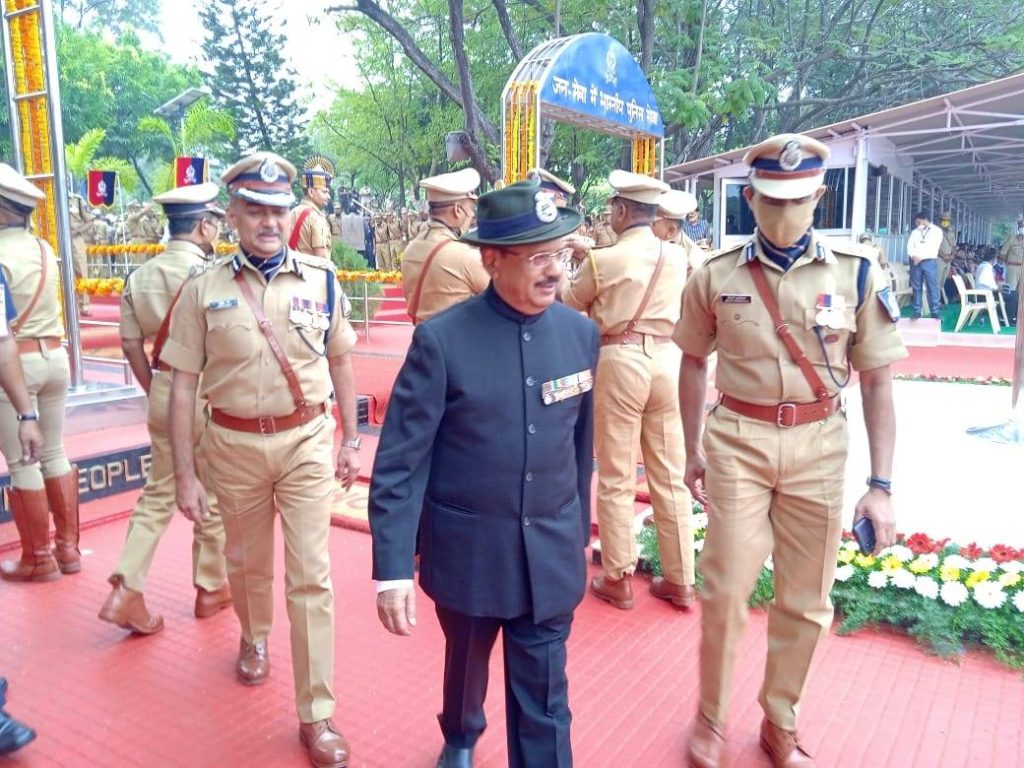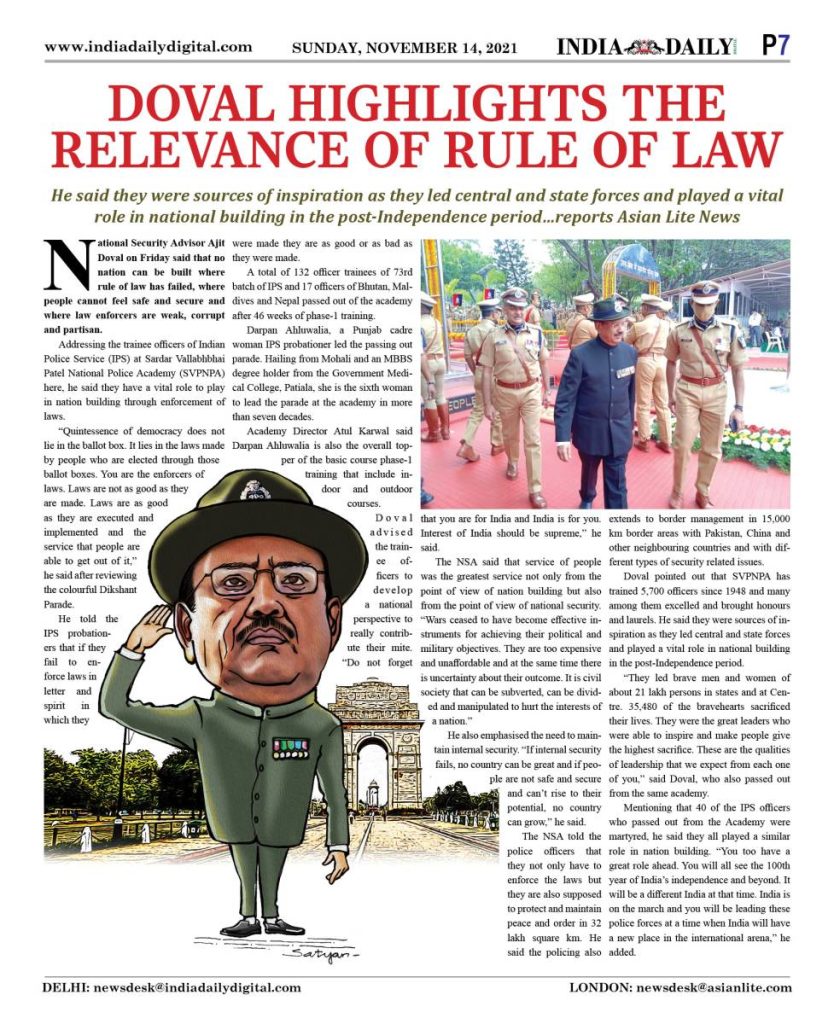The remarks by the Russian president came while he met National Security Advisor Ajit Doval on the sidelines of the BRICS National Security Advisers’ meeting
Russian President Vladimir Putin on Thursday extended an invitation to Prime Minister Narendra Modi, proposing a bilateral meeting on October 22, on the sidelines of the BRICS Summit in Kazan. During the invitation, Putin also referred to PM Modi as a “good friend.”
The remarks by Putin came while he met National Security Advisor Ajit Doval on the sidelines of the BRICS National Security Advisers’ meeting. Putin had a meeting with Doval at the Constantine Palace in Russia’s St. Petersberg.
Quoting President Putin, the Kremlin, in a statement, said, “We will be expecting Mr Modi in Kazan. I also suggest holding a bilateral meeting there on October 22 in order to close the books on our joint work in implementing the agreements reached during his visit to Moscow and outline some prospects for the near future.”
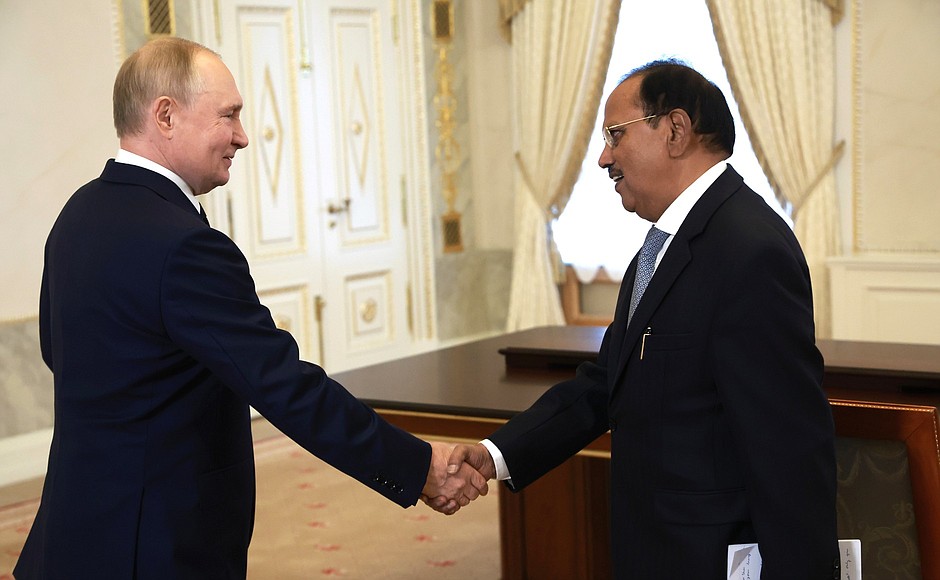
“Please extend my warmest regards and best wishes to Mr Modi, my good friend,” the statement added.
Putin further said that the “special privileged strategic partnership” between India and Russia is “gaining momentum and growing stronger, which we are delighted about.” He added, “We are also pleased to see India’s success in strengthening its statehood and advancing its economy under Prime Minister Modi’s leadership.”
The Russian president further highlighted the importance of security cooperation between India and Russia, emphasising that security issues have remained a top priority for both nations. “Security issues have always been, and continue to be, among our top priorities. We appreciate your visit to St. Petersburg following last year’s meeting in Moscow. Thank you for continuing to support this dialogue from the Indian side,” Putin said.
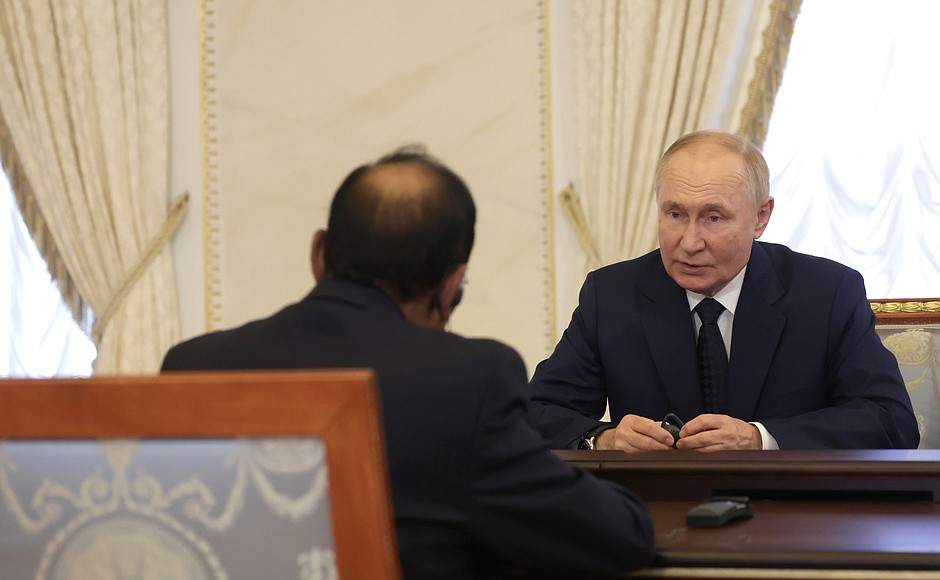
The Indian Embassy in Russia said that Doval and Putin, during their meeting, discussed issues of mutual interest. Sharing a post on X, it wrote, “Ajit Doval called on the President of the Russian Federation Vladimir Putin in St Petersburg on September 12, as directed by Prime Minister Narendra Modi. They discussed issues of mutual interest in the spirit of Special and Privileged Strategic Partnership between the two countries.”
Earlier in the day, Doval had a bilateral meeting with Sergei Shoigu, Secretary of the Security Council of the Russian Federation, on the sidelines of the BRICS NSAs meeting in St Petersburg. Both sides reviewed progress in bilateral cooperation and discussed important issues of mutual interest.
Notably, in July, Narendra Modi went to Russia and hailing the relationship between both nations, PM Modi asserted that their ties are important not just for India and Russia but for the entire world. He had said, “In the context of today’s global atmosphere, India and Russia’s partnership becomes all the more important. Both of us believe that continuous efforts should be made for global stability and peace. In the time to come, we will work together towards this.”
The Prime Minister had also asserted that in the past 2.5 decades, the relationship between India and Russia under the leadership of Putin has strengthened. He had said, “Under your (Putin) leadership, India-Russia relations have strengthened in all directions and have scaled new heights each time. The foundation of strategic ties between the two nations that you had laid has only further strengthened over time.”
Meanwhile, on the sidelines of the BRICS NSAs’ meeting, Doval also met with Chinese Foreign Minister Wang Yi on Thursday. During their discussions, Doval emphasised that maintaining peace and tranquillity in border areas, as well as respecting the Line of Actual Control (LAC), are essential for restoring normalcy in bilateral relations between India and China.
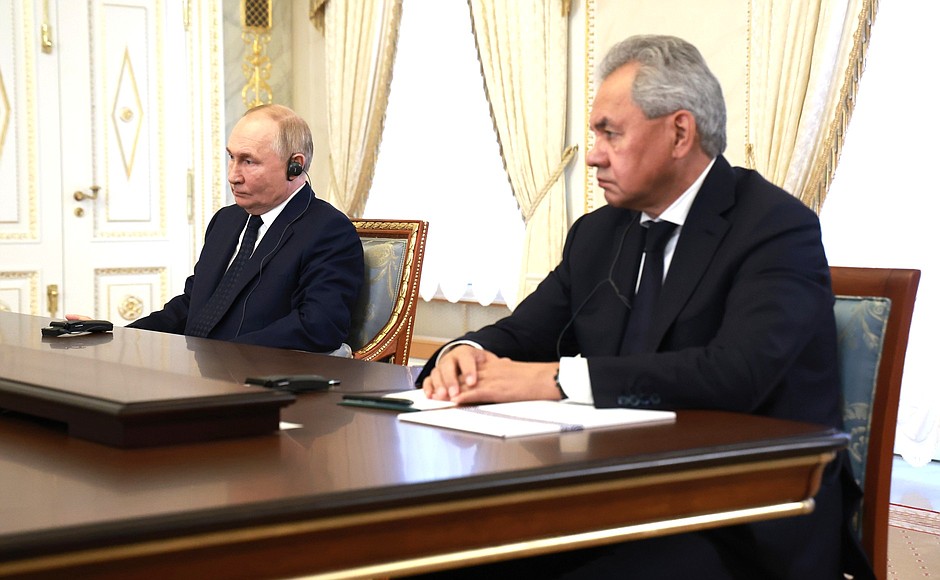
The meeting gave India and China an opportunity to review the recent efforts towards finding an early resolution of the remaining issues along the Line of Actual Control (LAC), which will create conditions to stabilise and rebuild bilateral relations. Both sides agreed to work with urgency and redouble their efforts to realise complete disengagement in the remaining areas, the Ministry of External Affairs said in a press release.
Doval conveyed that peace and tranquillity in border areas and respect for LAC are essential for normalcy in bilateral relations. Both sides must fully abide by relevant bilateral agreements, protocols, and understandings reached in the past by the two governments.
The two sides also agreed that the India-China bilateral relationship is significant not just for the two countries but also for the region and the world. The two sides also exchanged views on the global and regional situation, the MEA release added.
Notably, Russia is holding the BRICS chairmanship for the year 2024. BRICS is an informal group of states comprising Brazil, Russia, India, China, and South Africa, with new members Egypt, Iran, UAE, Saudi Arabia, and Ethiopia joining the grouping in 2023. NSA Doval had participated in the 13th BRICS NSA meeting in Johannesburg in July 2023. (ANI)
ALSO READ: Doval attends BRICS meets in Russia
